
I created an ultimate guide a few years ago that received over 400,000 visits.
The original idea wasn’t mine.
But I quickly made it popular by publishing a stream of guides that all received over 361,494 visitors each.
Getting a ton of new visitors is only the first goal, though.
These guides also rack up tons of social shares.
My Definitive Guide to Growth Hacking has been shared over 3,600 times across different networks according to Buzzsumo.

And they get a bunch of high-quality backlinks, too. Forbes and Fortune were just two of the places that link to it.

All of this leads to a ton of new visitors discovering my content for the first time.
And then a good percentage of those becoming new leads and customers.
Not bad for a single piece of content, right?
The best news of all is that anyone can create them.
They take a lot of work, time, and effort.
But otherwise, you can create one right now in almost any industry imaginable.
Here’s an ultimate guide to creating ultimate guides that will skyrocket traffic, shares, leads, and customers.
Start by finding topics that are already trending
My original “Guide to Online Marketing for Beginners” only received 68,319 visitors.
That’s less than 25% of the views my “Guide to Growth Hacking” received over 414,209 visitors.
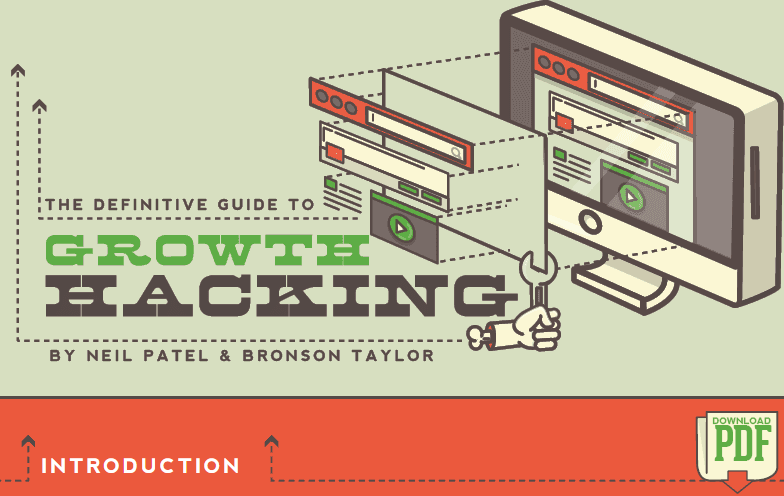
What happened?
Why did one get so much attention, while the other received barely any?
There are a few reasons that I’ll share in this article.
However, one of the biggest problems was that “online marketing” has already been beaten to death.
Think about it.
You can’t go anywhere online without reading a “guide to online marketing.”
The topic has been around ages. It’s nothing new.
So trying to add something new is hard.
And getting people excited to share, write about, or promote it is equally challenging.
They’ve already seen almost everything there is about that topic.
“Growth hacking” has become a hot topic in recent years by comparison.
The concept and term didn’t even exist until recently.
That hints at the first tip.
There’s not a whole lot anyone can do if the public doesn’t care about your topic.
There has to be external demand for what you’re talking about.
So you have to find topics that are already trending.
Check out the Google Trends graph that led me to write a guide about growth hacking:
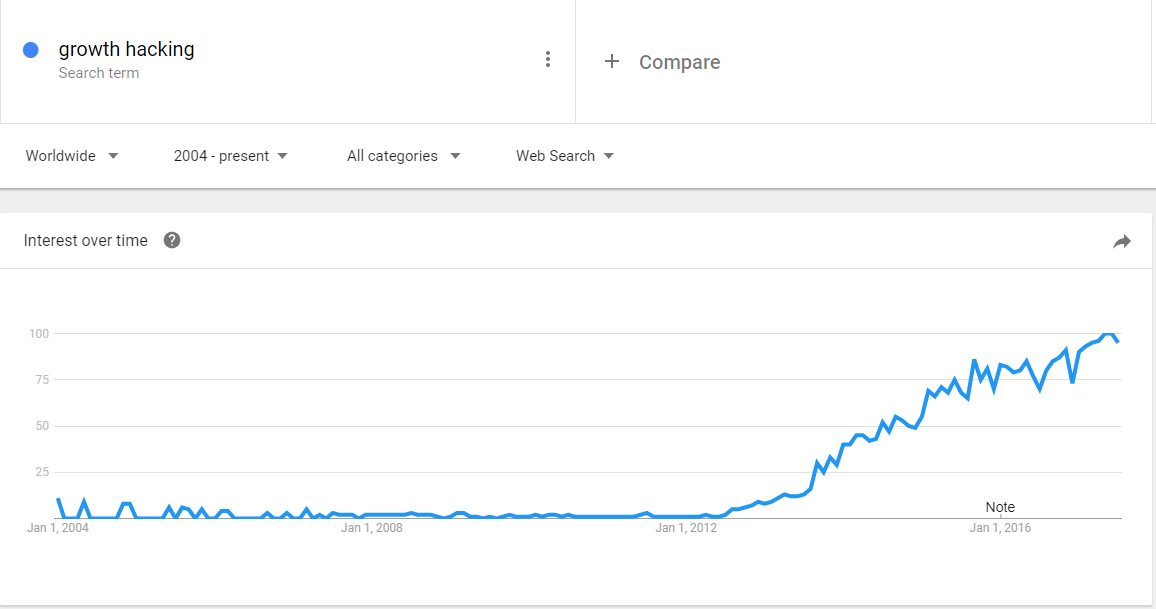
It’s blowing up!
Now compare that to “online marketing.” It’s a completely saturated topic.
Attention spiked a few years ago and has only dropped off since then.

Here’s another perfect example.
Check out the interest in “influencer marketing” over the past two years.

That’s no coincidence!
Social sites like Instagram have skyrocketed over the past few years, too.
All kinds of new niches opened up for regular people to reach celebrity status.
Creating partnerships with celebrities used to only be possible for giant brands with plenty of dough.
But now every single company, big or small, has the power to work with influencers.
Topics don’t just trend randomly.
New technology comes out, and things evolve.
Gaps open up in the marketplace.
It’s kind of like poker.
You need to look for those time-sensitive opportunities.
When a strong hand comes along, and you get a few people biting, you need to raise the stakes and go all-in.
Capitalizing on trending topics doesn’t just get you more readers.
It will also help you land high-quality backlinks without link building.
People are much more likely to write new stories and share amazing content on a trending topic over others that have already been beaten to death.
Why you should prioritize quality over quantity
I’ve created blog posts from 3,000 words on up to over 10,000 words.
I’ve created guides that range from 20,000 to ones that rival book length at 50,000.
What’s the ideal length?
What length resulted in the best results?
Length actually had no bearing on results.
Each of these resources needs to be long enough. You need to go over at least 3,000 words for a blog post to see the best bang for your buck.
But then you hit a point of diminishing returns.
5,000 words might not be better than 3,000 words when you’re just comparing word count alone.
Similarly, a giant 45,000-word guide might not outperform a 20,000 word one at the end of the day.
Instead, the priority should be on quality at that point.
There’s another hidden benefit to cutting it short.
First, you can get it done faster.
Think about the time it takes to create something that’s 45,000 words vs. 20,000.
Not only is it more work for a writer, but the designer also has twice the work now.
Second, it will cost less.
Writers and designers charge by the time it takes for them to create something. Twice the work translates into twice the cost!
Here’s why the cost you pay ends up being so important.
Design can make or break your success.
Visually stunning content will always outperform dreadful design in my experience.
The content that gets extra design attention always gets the most social shares.
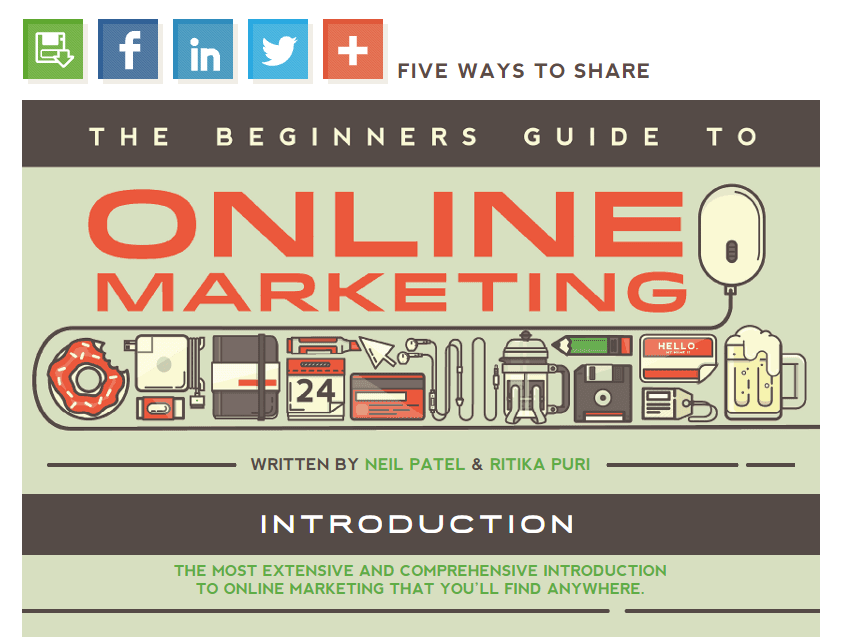
But that means you’re going to be forking over thousands of dollars for each of these in-depth guides.
That’s why you should focus on quality, not just quantity.
You need to have the budget to put behind this massive campaign. Otherwise, you risk having it fall flat.
Dribbble is one of my favorite sites to find awesome designers. You can go on and view their past work before ever asking for a quote.

That way you can check out their style before committing to anything.
Keep in mind that Dribbble designers tend to be among the best. So they won’t be cheap.
I’ve spent up to $20k on just a single design, for example.
If you need a more budget-friendly option, sites like Fiverr and Upwork will each have a ton of options.
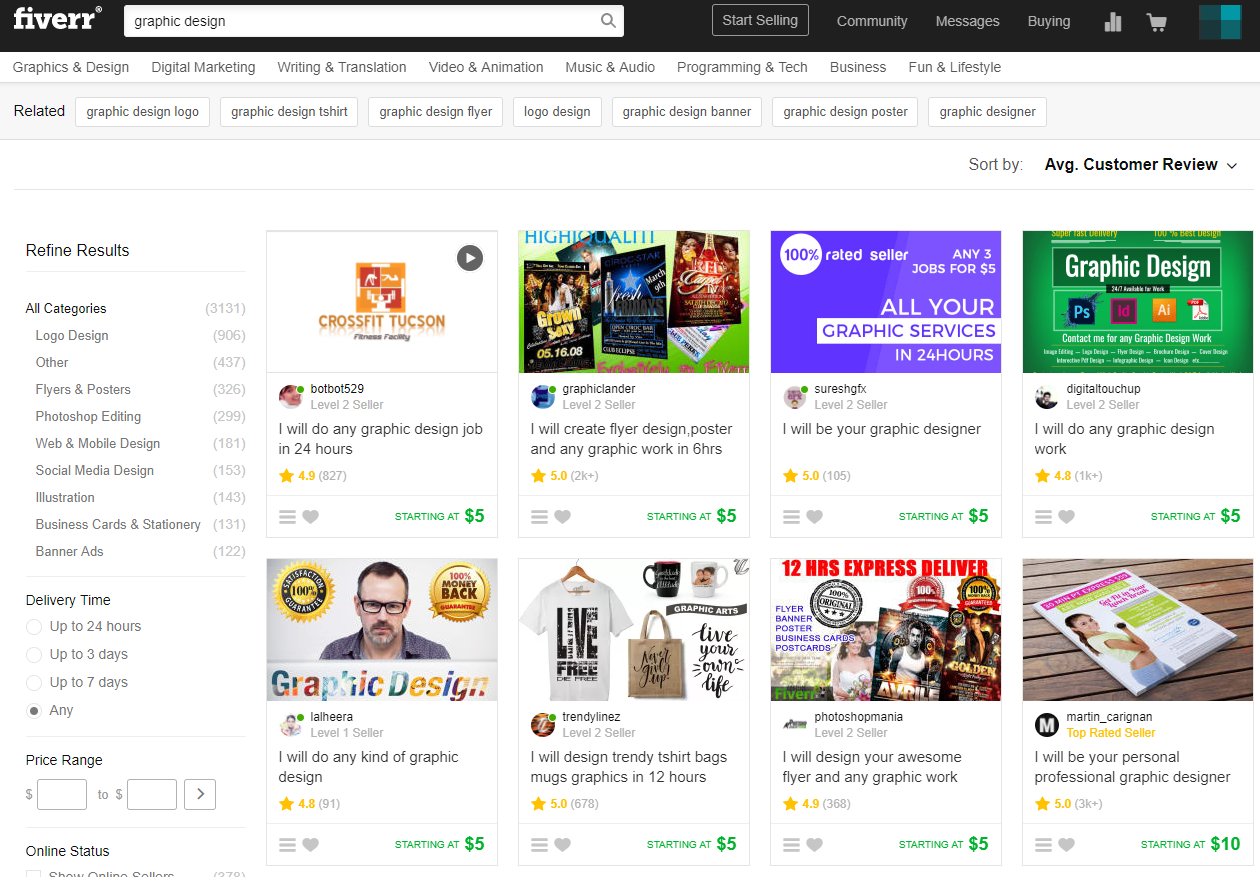
Just be careful. The quality of designers on these sites can vary wildly.
Here’s a trick I’d recommend before plunging into a massive project with one.
Hire a few designers for a small project. Use the same exact project, too.
That way you can see real samples from each one and compare them against each other.
Starting with a small project, like even a single page, keeps the initial cost low.
You can repeat this process over and over until you find the one who can handle your bigger vision.
The design isn’t the only expense you’re going to incur, though.
Throwing up a massive image file on a page won’t land you new search traffic.
Think about it like this.
You’ve done all the extra work to find awesome long-tail keywords that will bring in the perfect visitors.
You’ve optimized the basic meta tags on the page before pushing it live.
However, there’s one thing you forget about.
Google can’t read image files!
So you can’t just drop a giant JPG file onto your site.
You’re going to have to also work together with a developer now to build out the page into interactive content.
There will need to be HTML so that search engines can index the entire guide you’re creating.
See how this escalates?
You’re going to have to pay an awesome designer. You’re going to have to pay an awesome developer.
And we haven’t even touched on the most important piece yet.
You still need someone to write the entire thing, first!
How to find good writers that won’t break the bank
ClearVoice recently ran a study.
They wanted to see how good, good writers really are.
Here’s what I mean.
Writing can be subjective.
There are a few basic principles to gauge quality. But otherwise, the style can vary tremendously.
Not to mention, someone might be a “good writer” on one topic or style and completely bomb on another.
What you pay these writers can also be all over the map.
The difference between one writer and another could mean twice the price for your new ultimate guide.
That’s where ClearVoice’s study comes into play.
They went out and hired a few different freelance writers.
These ranged from Beginner to Pro, and even Expert status.
ClearVoice then hired professional editors to ‘score’ the quality of their work. They looked at a number of criteria, including grammar, readability, story structure, and ability to follow direction.
What was the result?
Our findings confirm that freelance travel writers who claim to be experts – with a rate of $1.00 per word – showed significantly higher quality.
They even released an excellent infographic that summarizes their findings. For example, the lower quality writers had significantly more errors than the better ones.

In other words, paying more gets you better writers.
That shouldn’t be very surprising by now, should it?
Job boards are among the first place to start looking for quality writers.
Placing an ad on the Problogger job board should bring in hundreds of applicants within a few days.

The results you’ll find here tend to write on several different industries.
Otherwise, each industry will have their own specific job boards, too.
For example, the Inbound.org job board can help you find people with a deeper marketing background.
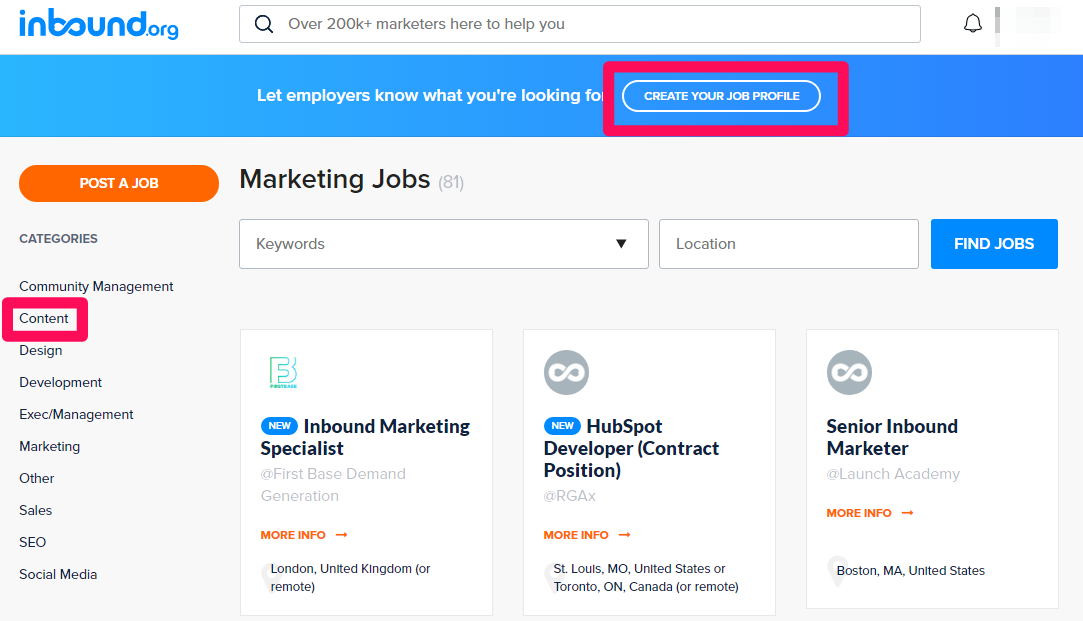
Placing an ad on both of these people will create a flood of new people.
How are you possibly going to sort through them all?
Being able to write an awesome Ultimate Guide requires two things.
First, they need to understand your subject or topic.
Start by looking for samples that show they already understand your industry’s terminology.
Second, they need to be able to write conversationally.
Here’s what I mean.
These posts are going to be long. You need to keep a reader’s attention to finish it.
Look for writers that already understand how to write for the web.
That means their sentences should be short. The tone should be simple, too.
It should sound like you’re talking about something with a friend.
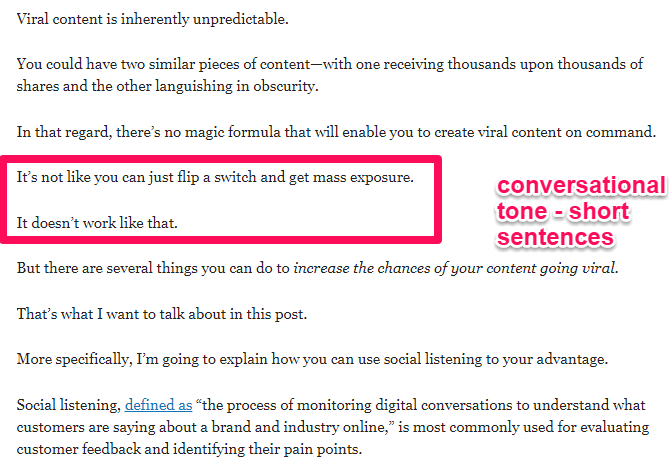
Another tactic to find better writers is to go read the top media properties in your space.
Look around at the bylines and see who’s writing you already admire.
You can even take a glance at their social signals and reading stats to see if other people like them as much as much as you do.
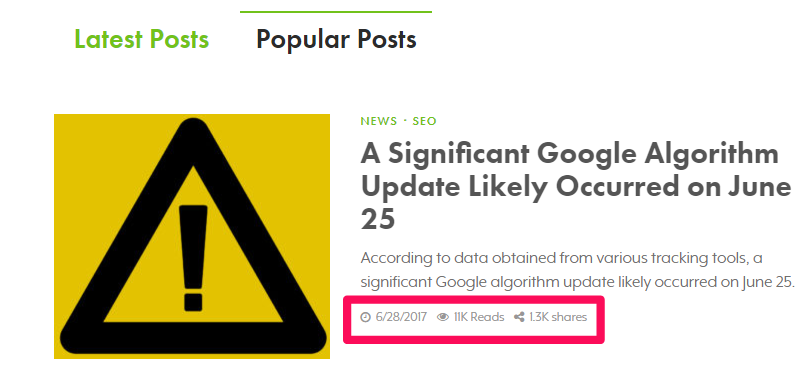
However, don’t just rush straight into a new big project.
It’s common to work with new writers on a single test project. That way you can see if they’re going to be a good fit or not.
Start by scaling the project back to a single page. Have them prepare an outline first, to see if they’re on the right track before plowing forward.
The key is to see if they can meet your criteria and deliver on a deadline.
Otherwise, a massive project like an ultimate guide will completely overwhelm them.
Loop in your industry contacts and influencers
Writing everything from scratch is both time-consuming and expensive.
Bringing in your industry contacts or even other influencers can help solve both of those challenges.
For example, you can send a few simple emails out to round up quotes from other experts.

If you’re reaching out to a big list, put together your questions in a Google Form and send out the link.

Why work hard when you can work smart? 😉
Working with expert influencers like this can provide a number of benefits.
You get to cut down on the original content creation you’re responsible for. They’ll be able to supply words for you.
Expert quotes will then also add credibility to your content.
It will back up the points you’re trying to make. And you can ‘piggyback’ off of their brand name.
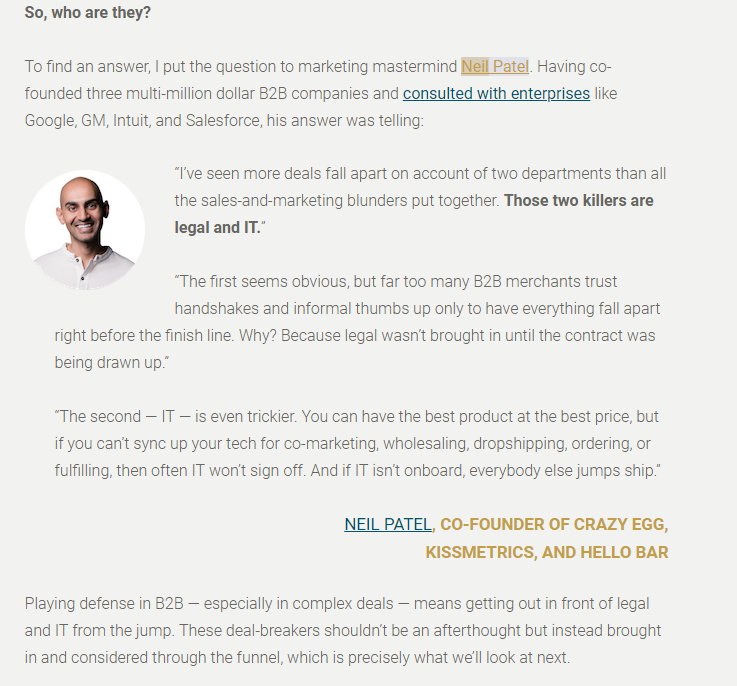
That’s not even the best part, though.
These influencers should already have their own built in audiences. They’re ‘brand names’ in your industry for a reason.
Including them from the very beginning gives you a built-in promotion strategy.
Now you won’t have to guess or cross your fingers when you hit the “Publish” button.
All you have to do is reach out to those included.
Send them a tweet or email when it’s about to go out, with a link for where to find it.
Then sit back and watch the results start to pour in.
All of the content I’ve done with experts will typically bring in three times more Twitter traffic.
Not because of me or anything I’ve done special. It’s all due to the other people you’re including.
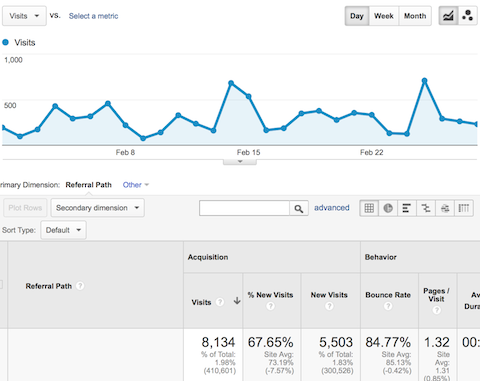
You’ll then be able to leverage the high profile of these people.
Getting responses to cold emails isn’t easy.
But I’ve found that having a few industry names to sprinkle in can help double response rates.
So if you typically only get 1-2% of your emails opened, it might get you up to the 5% or even 10% range.
The more people included, the more buy-in you can get, the greater the ripple effect when it goes live.
Don’t neglect to format for mobile and PDF
Long ultimate guides will end up being book-length.
They become awesome resources for people to reference in the future.
That means a lot of your readers are going to want to print them out!
I know. This surprised me initially, too.
I didn’t even expect people would want a PDF version. But then I had over 300 emails asking me for it when my first ultimate guide went live!
To make things simple, I use Uberflip as it is an affordable piece of software that ensures that your PDFs will work on mobile and tablet devices such as Kindle or iPad.
I guess it makes sense when you think about it.
More people read stuff from the internet on their phones than on desktop computers.

These massive guides are going to rank extremely well.
People are going to discover them on their mobile device, first, while casually browsing around.
The last thing you want is to force these people to bounce because you don’t have a mobile-friendly format.
I love using Uberflip for this because it instantly does all the work for you.
Just upload the file, and it will make sure your content looks beautiful on any device your readers are using.

Conclusion
I always thought the ultimate guide would be a good idea.
But I never expected how much it would deliver.
They pull in hundreds of thousands of visits.
People love sharing them almost as much as reading them.
That means they also get tons of high-quality backlinks.
If you do it right, your ultimate guides will be ranking for competitive keywords in no time.
Just make sure that you’re investing in quality over quantity.
You might even need a team of people to pull it off. Good designers, developers, and writers aren’t cheap.
So focus on creating the best possible resource you can.
The results should show up ASAP if your topic is already trending.
What’s your favorite ultimate guide example?

See How My Agency Can Drive More Traffic to Your Website
- SEO - unlock more SEO traffic. See real results.
- Content Marketing - our team creates epic content that will get shared, get links, and attract traffic.
- Paid Media - effective paid strategies with clear ROI.
Are You Using Google Ads? Try Our FREE Ads Grader!
Stop wasting money and unlock the hidden potential of your advertising.
- Discover the power of intentional advertising.
- Reach your ideal target audience.
- Maximize ad spend efficiency.

